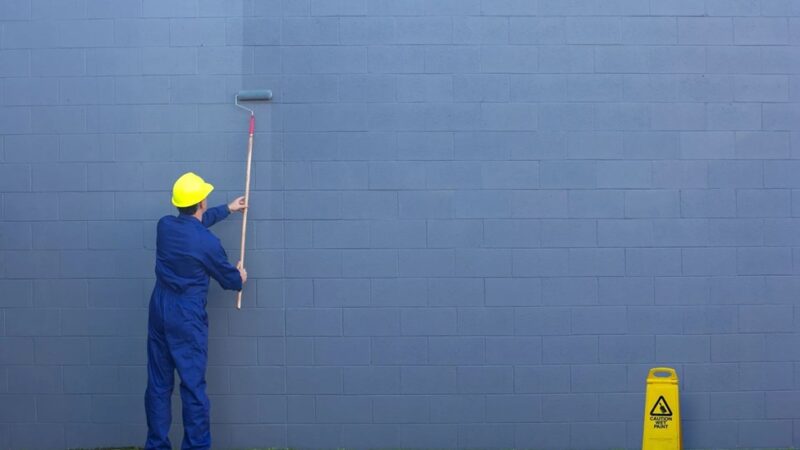DIY vs. Professional AC Repair: What You Can (and Can’t) Fix Yourself

When your air conditioning unit starts malfunctioning in the middle of a scorching summer, it can be tempting to try and fix the problem yourself. After all, who wouldn’t want to save a few bucks on repair costs? However, before you roll up your sleeves and grab your toolbox, it’s important to understand what parts of your AC system you can fix yourself and which ones require the expertise of a professional. In this blog, we’ll explore both sides of the coin—DIY AC repairs versus calling in a professional like Woolf Mechanical—and help you determine when to take matters into your own hands and when to leave it to the pros.
Why DIY AC Repairs Might Be Appealing
DIY repairs often seem like a no-brainer for homeowners looking to save money. After all, a simple fix could cost a fraction of what you’d pay a professional, right? Plus, who doesn’t want to avoid waiting for an appointment and the hassle of a service call? With a little research and some elbow grease, many people feel confident enough to attempt simple repairs on their own.
But while some AC problems can indeed be solved without professional help, others can quickly escalate into more significant issues, costing you more money in the long run. Before jumping into DIY AC repairs, it’s important to evaluate your comfort level with the task at hand and the complexity of the issue you’re dealing with.
What You Can Fix Yourself
There are some simple maintenance tasks and minor repairs that you can tackle yourself. These tasks are usually straightforward, don’t require specialized tools, and pose little risk to your system’s performance or your safety.
1. Replacing or Cleaning the Air Filter
One of the easiest and most common AC repairs is replacing or cleaning the air filter. A clogged or dirty filter restricts airflow, causing your system to work harder and reducing efficiency. Depending on the type of filter, you may only need to clean it (some filters are reusable), or you might need to replace it with a new one.
How to do it:
- Turn off the power to your AC unit.
- Remove the filter (usually located near the return air duct).
- If it’s washable, clean it with warm water and mild detergent. Let it dry before reinstalling.
- If it’s disposable, take it to a local hardware store and purchase a replacement.
Why it matters:
Regularly replacing or cleaning your air filter will help maintain optimal airflow and prevent your AC unit from overheating. It also improves the overall efficiency of the system.
2. Checking and Cleaning the Condenser Coils
The condenser coils are located on the outside unit of your air conditioner. Over time, they can accumulate dirt, debris, and dust, which can affect the cooling efficiency. Keeping the coils clean is essential for ensuring the heat transfer process remains effective.
How to do it:
- Turn off the power to the unit.
- Use a hose to gently clean the coils, or use a vacuum with a soft brush attachment to remove debris.
- If you use a hose, be sure to avoid using high-pressure water, as it may damage the coils.
Why it matters:
Clean condenser coils allow your AC system to work more efficiently, helping to keep your energy bills lower while preventing overheating or breakdowns.
3. Straightening the Fins
AC units have metal fins that help direct airflow. Over time, these fins can become bent, which can reduce airflow and cause the unit to work harder. Fortunately, straightening the fins is a simple task.
How to do it:
- Turn off the AC and unplug the unit.
- Use a fin comb (available at most hardware stores) to carefully straighten any bent fins.
- Gently slide the comb through the fins, taking care not to bend them further.
Why it matters:
Proper airflow is crucial to maintaining an efficient cooling system. Straightening the fins ensures that air can flow freely through the system, reducing the load on the compressor.
4. Clearing the Drain Line
The drain line removes moisture from the system, and over time, it can become clogged with algae or debris. A clogged drain line can lead to water damage and a host of other problems, including reduced cooling performance.
How to do it:
- Find the drain line, usually located near the outdoor unit.
- Use a wet/dry vacuum to suck out any debris from the line.
- Flush the line with a small amount of water mixed with vinegar to clear out any remaining gunk.
Why it matters:
If the drain line is clogged, the AC unit won’t be able to expel moisture properly. Clearing the drain line helps prevent water damage and mold growth inside the system.
When to Call Woolf Mechanical or a Professional AC Technician
While DIY repairs can save you money on simple tasks, there are many situations where professional intervention is necessary. Attempting to fix complex problems without the proper knowledge or tools can lead to further damage or costly mistakes.
1. Refrigerant Leaks
If your AC is blowing warm air or struggling to cool your home, the problem could be a refrigerant leak. Refrigerant is a vital component of your cooling system, and if you have a leak, your system won’t work efficiently. However, refrigerant is a hazardous substance that requires specialized knowledge to handle.
Why you should call a professional:
Handling refrigerant requires certification and specialized tools. A professional technician like Woolf Mechanical can identify the source of the leak, repair it, and recharge the system with the proper amount of refrigerant. Handling this yourself could cause more damage or even harm your health.
2. Electrical Issues
If you’re experiencing electrical problems, such as your AC unit not turning on or tripping circuit breakers, it’s best to call in a professional. Electrical components are complex and dangerous to work with if you’re not trained.
Why you should call a professional:
Electrical repairs require safety knowledge and experience. A professional technician can diagnose and fix wiring issues, faulty capacitors, or malfunctioning circuits without putting you or your home at risk.
3. Compressor Problems
The compressor is the heart of your AC system. If it’s malfunctioning, the entire system could fail to cool properly. Diagnosing and replacing a compressor is an advanced task that requires technical expertise and the right equipment.
Why you should call a professional:
Replacing or repairing a compressor is a complicated job that requires specialized tools. A professional technician can determine whether the compressor is the issue and recommend the best course of action.
4. Frozen Coils
Frozen evaporator coils are a sign of an underlying problem, such as low refrigerant levels or airflow issues. If you notice ice building up on the coils, it’s crucial to address the root cause of the problem rather than just thawing the ice.
Why you should call a professional:
Frozen coils require professional diagnosis to identify whether the issue is due to a refrigerant leak, airflow restrictions, or another problem. A technician can safely thaw the coils and fix the underlying cause to prevent the problem from recurring.
5. AC Unit Replacement
Sometimes, repairs just aren’t enough to keep your AC running efficiently, and a replacement may be necessary. If your system is old and constantly requiring repairs, replacing it might be the most cost-effective solution.
Why you should call a professional:
Choosing the right replacement unit and installing it correctly is critical for ensuring optimal performance. A professional will assess your needs and recommend the right system for your home, then install according to industry standards.
FAQS
1. Can I fix my AC unit if it’s not blowing cold air?
In some cases, the issue may be something simple like a clogged filter or dirty coils, which you can clean or replace yourself. However, if there’s a refrigerant leak or compressor issue, it’s best to call a professional technician like Woolf Mechanical.
2. How often should I perform DIY maintenance on my AC unit?
You should replace or clean your air filter every 1-3 months, clean the condenser coils annually, and check the drain line every season to ensure proper drainage. More complex repairs should be handled by a professional as needed.
3. How do I know when it’s time to call a professional for my AC?
If you’re facing issues that involve refrigerant leaks, electrical problems, compressor malfunctions, or frozen coils, it’s time to call a professional. Attempting to fix these issues yourself could make the problem worse or be dangerous.
Conclusion
While DIY repairs can help you maintain your air conditioning unit and take care of simple problems, some issues require the knowledge and experience of a professional. Woolf Mechanical can help you tackle more complex repairs and ensure your AC unit is running smoothly and efficiently. If you’re unsure whether to attempt a repair yourself, it’s always a good idea to consult a professional technician to avoid costly mistakes or safety risks. By knowing when to DIY and when to call in the pros, you can keep your AC running in top condition all year round.





